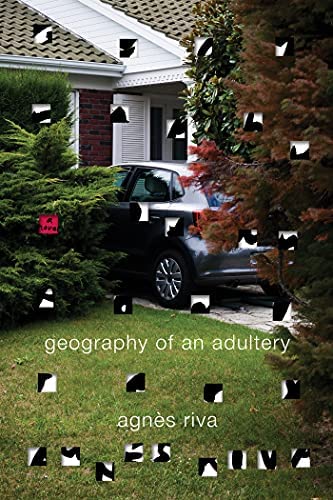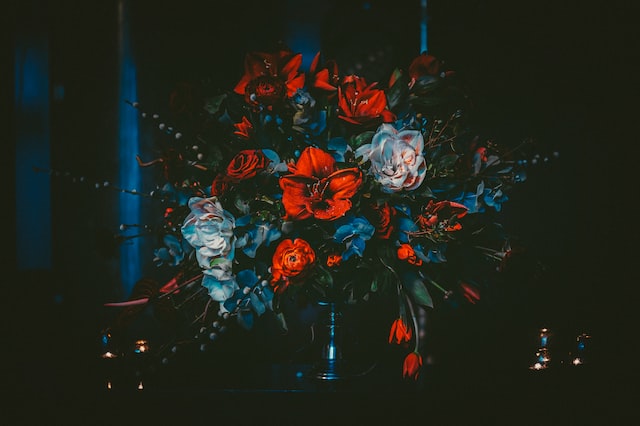by Nicole Yurcaba

Other Press is well known in the independent press world for offering readers a large selection of high-quality translations. They also hold the reputation for publishing some of the most evocative and thought-provoking books available from up-and-coming international writers whose work has not yet entered the English-speaking sphere. Geography of an Adultery, by French writer Agnes Riva and translated by the late John Cullen, is a gripping, 139-page powerhouse detailing the ongoing affair between Ema and Paul.
At first, Geography of an Adultery seems like a simple novel. Ema and Paul are lovers who met at work. Because both are married with children, they arrange brief meetings when and where they can: in Paul’s car, at a distant apartment hotel, occasionally at Ema’s house. However, Ema soon begins wanting more from the relationship, and she daringly begins testing the boundaries and spaces which she and Paul initially carefully defined.
Part of the magic in Geography of an Adultery is found in its structure. Each of the novel’s chapters takes place in a particular place away from prying eyes, where Paul and Ema act on their desires in privacy. For example, the book’s initial chapter is cleverly titled “a corner in the kitchen in ema’s house, between the sink and the refrigerator.” These chapter titles are thought-provoking; they make readers think about the places—even the smallest ones— where a couple engaged in an affair might take advantage, in order to carry out their trysts. The places also become a reflection of not only Ema and Paul’s relationship, but also their character. The corner in the first chapter is not simply a corner. It is a representation of the confined nature of Ema and Paul’s affair; it is also symbolic of the lack of substance forging their relationship. As the novel progresses, the spaces in which Ema and Paul meet expand. The penultimate chapter, titled “the novotel by the lake,” places the lovers in a neutral space. However, the space’s neutrality, as well as its portrayed “newness, associated with an idea of futurity,” conveys the growing distance between the lovers. By this point, readers understand that Ema and Paul’s affair is not going to end well, and readers are bracing themselves for a disastrous end.
Thus, the rooms in which Ema and Paul carry out their affair are not simply spaces needed for a few moments of pleasure. By the novel’s end, these rooms are places of transformation, of growth, of self-awareness—at least for one character. Perhaps, too, these rooms stand open, waiting for readers to enter, sit down, and spend some time thinking about, and dwelling in, the external and internal compartments, apartments, corners, and crannies they most need to clean out or remodel.
Speaking of Ema, it’s also important for readers to understand that she is, ultimately, the novel’s strongest character and main focus. Ema possesses substance. She’s confident, intelligent, and hard-working. At the novel’s beginning, the relationship’s powerplay seems to lean in Paul’s favor, especially since his terms define the couple’s parameters. However, this shift occurs subtly, thanks to Riva’s fluid, somewhat poetic, writing. Throughout the novel, readers observe Ema’s maturation, and her maturity creates a cynicism which fuels the novel’s underlying dark humor. Thus, the novel’s ending may or may not surprise readers—it’s Ema who ends her and Paul’s affair. Ema’s awakening is empowering. It appears quietly, yet blatantly, in the novel’s final chapter: “The man had spoken to her about a friend’s apartment in Paris that was going to be available and that he was thinking about subletting. But Ema explained that it was too late for that now, their time had passed, her desire was gone.” Her awakening serves as a gentle suggestion to readers about the life-altering transformation a bit of self-awareness can spark.
Geography of an Adultery isn’t another literary smut-fest. It’s clever and intelligent, selfish and thrilling. Like Lena Andersson’s Acts of Infidelity (another Other Press literary great!), it examines an enticing, yet doomed, relationship in which a female lead character rises above the emotional madness and becomes a heroine in her own right.
Nicole Yurcaba (Ukrainian: Нікола Юрцаба–Nikola Yurtsaba) is a Ukrainian (Hutsul/Lemko) American poet and essayist. Her poems and essays have appeared in The Atlanta Review, The Lindenwood Review, Whiskey Island, Raven Chronicles, West Trade Review, Appalachian Heritage, North of Oxford, and many other online and print journals. Nicole teaches poetry workshops for Southern New Hampshire University and is a guest book reviewer for Sage Cigarettes, Tupelo Quarterly, Colorado Review, and The Southern Review of Books.



Add your first comment to this post